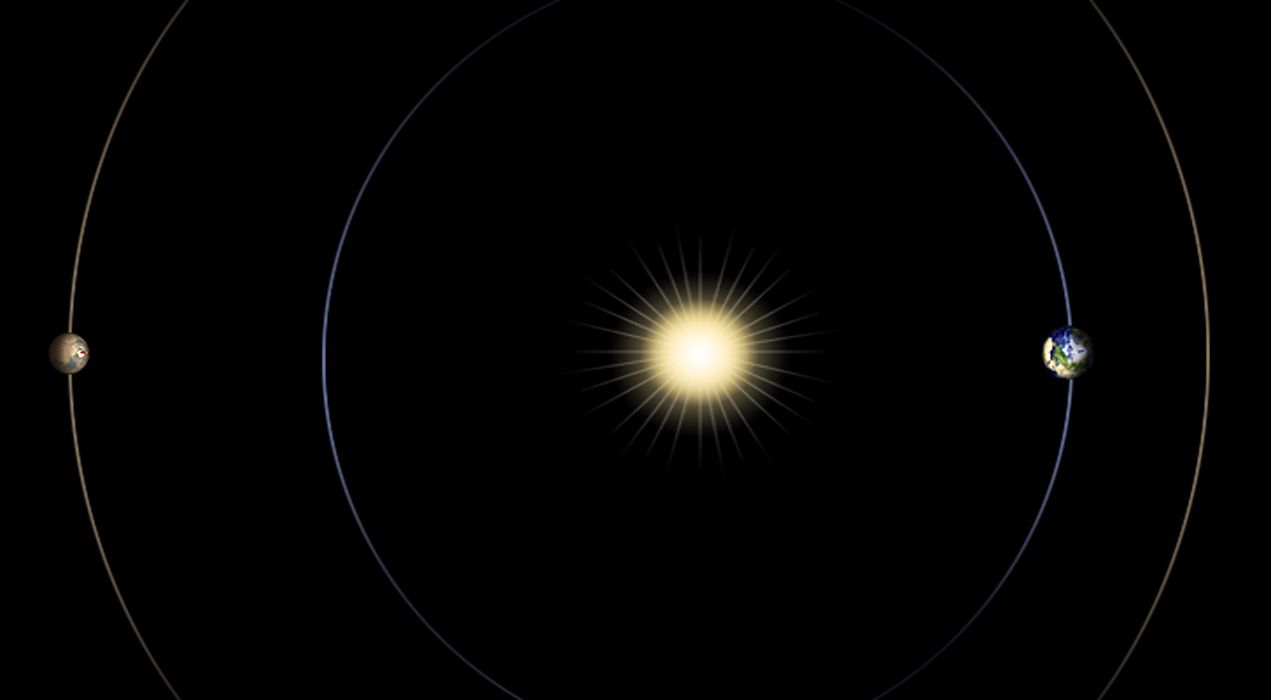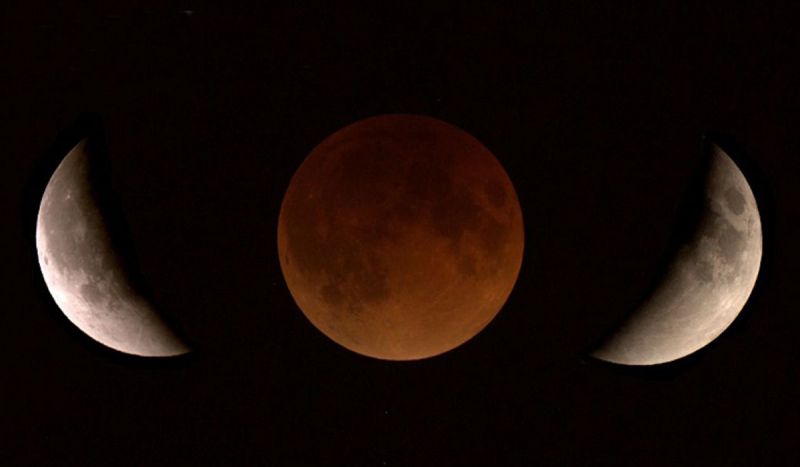
For the next couple of weeks, there will be a strange dearth of information coming from all the Mars missions. It's almost as if they've all gone radio silent. In fact, it's not "almost like"; it's exactly like.
If you could look down on our solar system from above right now, you’d be able to currently see the Earth and Mars forming a line with the Sun, one planet on either side. This particular geometry, called a Mars solar conjunction, dampens our ability to communicate with our small fleet of missions at Mars. The Sun will effectively block communications with the red planet from October 2 to October 14, while Mars is within 2 degrees of either side of the Sun, from our point of view here on Earth.
Why two degrees? That’s the point at which Mars is far enough behind the solar corona that there's an increased risk of radio interference. Radio interference is very bad for sending instructions and receiving data as it can cause signal loss, resulting in garbled commands or corrupted data. So no one is allowed to send new instructions during this time, so the engineers have already sent two weeks’ worth to the various missions.
Some instruments are turned off, especially cameras, because they generate huge amounts of data. Some data being collected will be stored in the meantime; however, many missions are simply running on automatic pilot. The orbiting satellites such as Odyssey and the Mars Reconnaissance Orbiter will continue to collect data from the landers and rovers. Don’t worry, Percy fans! All is still well.
After Mars moves out from the interference of the Sun’s corona on October 14, all the collected data will be sent through NASA’s Deep Space Network and then downloaded to the appropriate servers and mission operations. It will take about a week before normal operations resume, and engineers will make sure none of the data received during that time is corrupted, just in case they have to have anything re-sent.
This particular alignment occurs roughly every two years, and during this time, you'll see some of the folks who handle the Mars missions enjoying some much-deserved time off. We hope they are having a relaxing couple of weeks and look forward to seeing the data they get when Mars reaches the other side of the Sun.





